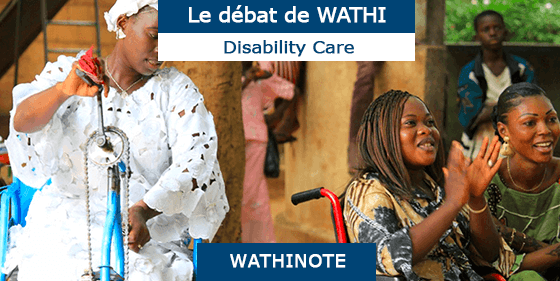

Affiliated Organization: UN Women
Type of publication: Press Article
Date of publication: December 2015
Lien vers le document original
An estimated one in five women live with disabilities and the prevalence of disability is actually higher among women than men (19.2 versus 12 per cent). Contributing factors include the lower economic and social status of women and girls, gender-based violence and harmful or gender-discriminatory practices.
Yet, women and girls with disabilities remain at the margins of decision-making and work on gender equality. For too long, the specific needs of women with disabilities have been invisible, both to the advocates of women’s rights and those of disability rights.
Making cities inclusive and accessible for all
Ahead of the Third International Conference on Housing and Sustainable Urban Development in 2016, UN Women will be promoting target 11.7 of the 2030 Agenda for Sustainable Development to provide universal access to safe, inclusive and accessible, green and public spaces, in particular for women and children, older persons and persons with disabilities as a key advocacy tool to ensure that the discussions on urban mobility and accessibility are undertaken through the lens of empowerment and that the new urban agenda addresses the rights of persons with disabilities paying particular attention to the rights and needs of women and girls with disabilities.
Improving disability data and statistics
To ensure the inclusion of women and girls with disabilities, in addition to gender-related information, disability-related information must be collected in surveys for example through the use of the questions developed by the Washington Group on Disability Statistics and second, at the analysis stage, where indicators must systematically be disaggregated and reported by sex and disability.
To address the intersection of gender and disability, UN Women has made sure to include the mainstreaming of gender in the disability dialogue and vice versa.
Our work with women and girls with disabilities
To end violence against women with disabilities, the Leonard Cheshire Disability Zimbabwe Trust Zimbabwe, a grantee of the UN Trust Fund to End Violence against Women, seeks to facilitate access to justice for at least 900 women and girls with disabilities that have survived violence and/or that are currently involved in legal matters as complainants or witnesses in 10 Zimbabwean districts. UN Women, with other partners, supported the Pacific Disability Forum to develop Toolkit on Eliminating Violence against Women and Girls with Disabilities in Fiji.
To strengthen the political participation and leadership of women with disabilities, in Tanzania, UN Women has worked with gender advocates to support to the participation of women, youth and persons with disabilities in the electoral process, contributing to the inclusion of women with disabilities in the list of candidates. UN Women also gives visibility to women leaders with disabilities, including through iKNOW Politics, the International Knowledge Network of Women in Politics, which has featured Kerryann F. Ifill, President of the Senate of Barbados the first woman, first disabled person and the youngest person to be elected to this role (at 38).
To spread awareness through digital and social media and encourage concrete actions for women’s economic empowerment, Empower Women through its digital media campaign, I am (wo) man, has sought to provide an opportunity for women with disabilities to share their stories.
To strengthen the political participation and leadership of women with disabilities, in Tanzania, UN Women has worked with gender advocates to support to the participation of women, youth and persons with disabilities in the electoral process, contributing to the inclusion of women with disabilities in the list of candidates
To showcase what women’s economic empowerment means to them and how it links to their scholarship-funded Information Communication and Technology (ICT) training.
In the humanitarian action field, UN Women included women with disabilities and partnered with the National Disability Women’s Association in the mobilization of relief efforts in response to the earthquake in Nepal. With UN Women’ support, years of advocacy by women’s rights groups, including those monitoring justice for women with disabilities in northern Uganda paid off with the passing of a resolution to address their specific needs. UN Women also advocates for women with disabilities to be included and participate at all stages of recovery and reconstruction efforts.
Les Wathinotes sont soit des résumés de publications sélectionnées par WATHI, conformes aux résumés originaux, soit des versions modifiées des résumés originaux, soit des extraits choisis par WATHI compte tenu de leur pertinence par rapport au thème du Débat. Lorsque les publications et leurs résumés ne sont disponibles qu’en français ou en anglais, WATHI se charge de la traduction des extraits choisis dans l’autre langue. Toutes les Wathinotes renvoient aux publications originales et intégrales qui ne sont pas hébergées par le site de WATHI, et sont destinées à promouvoir la lecture de ces documents, fruit du travail de recherche d’universitaires et d’experts.
The Wathinotes are either original abstracts of publications selected by WATHI, modified original summaries or publication quotes selected for their relevance for the theme of the Debate. When publications and abstracts are only available either in French or in English, the translation is done by WATHI. All the Wathinotes link to the original and integral publications that are not hosted on the WATHI website. WATHI participates to the promotion of these documents that have been written by university professors and experts.
